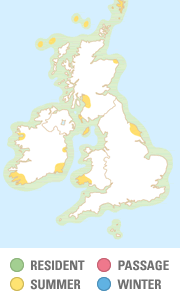 In January 2013, in the wake of some heavy rainfall, the Met Office published a non-peer-reviewed briefing paper that found that extreme rainfall might have increased. This was reported by Roger Harrabin here, with readers informed that "Professor Julia Slingo, chief scientist at the Met Office, said the preliminary analysis needed further research but was potentially significant."
In January 2013, in the wake of some heavy rainfall, the Met Office published a non-peer-reviewed briefing paper that found that extreme rainfall might have increased. This was reported by Roger Harrabin here, with readers informed that "Professor Julia Slingo, chief scientist at the Met Office, said the preliminary analysis needed further research but was potentially significant."
Today, the International Journal of Climatology has published just what Prof Slingo was a looking for. However, the paper concerned has a more mixed message than I think she might have wanted:
The England and Wales precipitation (EWP) dataset is a homogeneous time series of daily accumulations from 1931 to 2014, composed from rain gauge observations spanning the region. The daily regional-average precipitation statistics are shown to be well described by a Weibull distribution, which is used to define extremes in terms of percentiles. Computed trends in annual and seasonal precipitation are sensitive to the period chosen, due to large variability on interannual and decadal timescales. Atmospheric circulation patterns associated with seasonal precipitation variability are identified. These patterns project onto known leading modes of variability, all of which involve displacements of the jet stream and storm-track over the eastern Atlantic. The intensity of daily precipitation for each calendar season is investigated by partitioning all observations into eight intensity categories contributing equally to the total precipitation in the dataset. Contrary to previous results based on shorter periods, no significant trends of the most intense categories are found between 1931 and 2014. The regional-average precipitation is found to share statistical properties common to the majority of individual stations across England and Wales used in previous studies. Statistics of the EWP data are examined for multi-day accumulations up to 10 days, which are more relevant for river flooding. Four recent years (2000, 2007, 2008 and 2012) have a greater number of extreme events in the 3- and 5-day accumulations than any previous year in the record. It is the duration of precipitation events in these years that is remarkable, rather than the magnitude of the daily accumulations.
I haven't read the paper, and so I wonder what other multi-day accumulations they tested and whether they assessed the possibility that these results might have happened by chance. I'm not sure I'm alarmed by any of this.
 Bishop Hill
Bishop Hill  Oct 1, 2015
Oct 1, 2015  Climate: Models
Climate: Models  Via El Reg, we discover that a whole new source of climate coolants has been discovered.
Via El Reg, we discover that a whole new source of climate coolants has been discovered.












